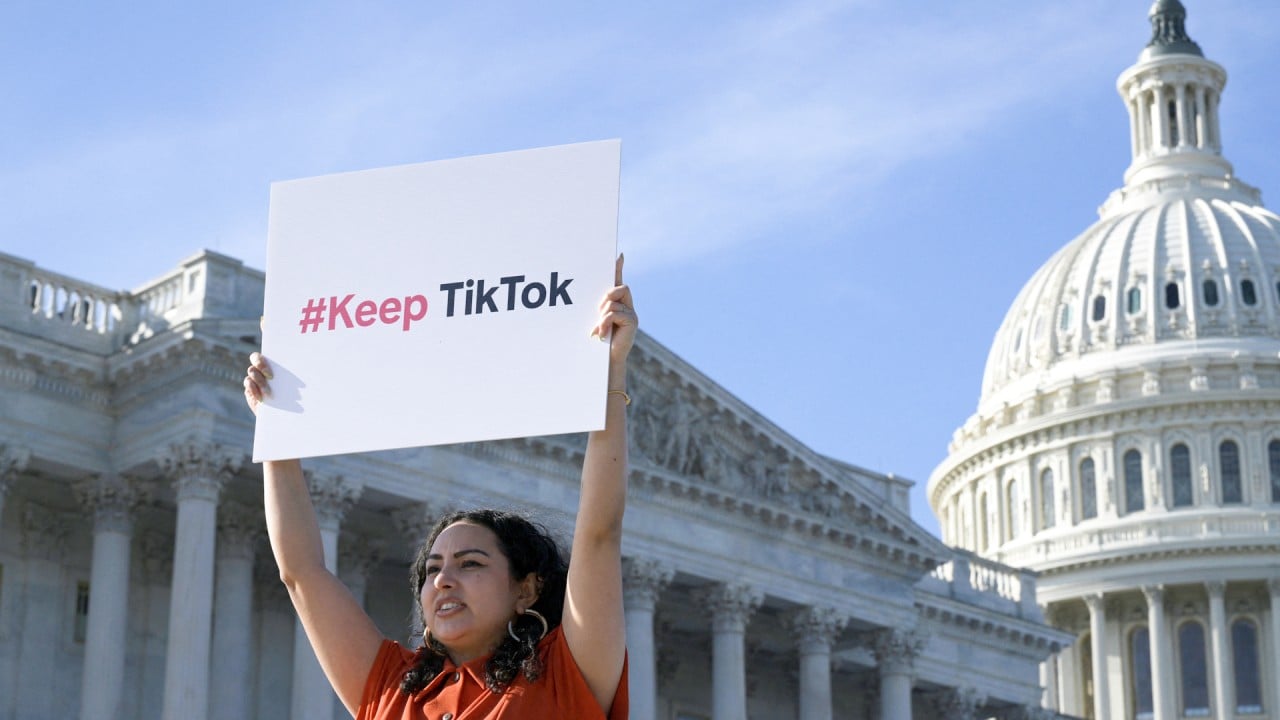
More Americans view China as an enemy, new Pew survey shows
- Four out of five people who responded to the poll say their opinion of mainland China is unfavourable, about the same as last year
- Older Americans have more hawkish attitudes, while those under age 29 don’t think limits on China’s power and influence should be a top priority
Roughly four-fifths of Americans have an unfavourable view of China and an increasing number see it as an enemy, according to data released on Wednesday, which showed older Americans and Republicans holding the most hawkish opinions about the country.
While the 81 per cent of respondents declaring an unfavourable view of China in Pew Research Centre’s survey is slightly lower than the 83 per cent registered a year ago, the numbers are about even when including the statistical margin of error, said Christine Huang, one of the authors of the survey report.
That unfavourable number has bounced in a 79 per cent to 83 per cent range for the past five years. The number of Americans with a favourable view of China has fallen within a 14 per cent to 21 per cent range, with this year’s coming in at 16 per cent.
“There was a huge jump [in negative sentiment towards China] between 2019 and 2020, which was timed with the Covid pandemic and also an election year,” Huang said.
“And then that number has stayed about the same at around 80 per cent, so it definitely seems like … a pattern that will continue to stay pretty negative.”
Hawkish attitudes towards China skew towards higher age brackets, with about 7 in 10 Americans 65 and older saying that limitations on China’s power and influence should be a top priority. That share decreases significantly in younger age groups, with just 28 per cent of those ages 18 to 29 making countering China a top priority.
Chinese-Americans regard Taiwan more favourably than China: Pew survey
Revelry, racial justice headline US’ Asian-American and Pacific Islander month
While the unfavourability numbers have been steady, the Pew data shows more Americans regarding China as an enemy.
About 42 per cent said China was an enemy of the US – the largest share since Pew began asking the question in 2021. Another 50 per cent said they saw China as a competitor, and only 6 per cent said the country was a US partner.
Consistent with recent years, some 59 per cent of Republicans and Republican-leaning independents describe China as an enemy, an increase of 6 percentage points, compared with 28 per cent for Democrats and Democrat-leaning independents. Among Democrats, views did not change significantly over the past year.
Pew’s survey also showed that roughly two-thirds of Americans think China “has a great deal or a fair amount of negative influence on US economic conditions”.
The poll also showed that 82 per cent of those surveyed think China has at least a fair amount of influence on US economic conditions. Among those, 79 per cent think that influence is negative, while 18 per cent say it’s positive.
While still a minority position, adults under 30 are significantly more likely than older Americans to say China is having a large positive influence on the US economy, at 19 per cent versus 6 per cent.
Trump mulls prison camps for migrant deportation if re-elected
Huang said that Pew has included questions about China’s influence on the US economy since 2020, and that the data showed that “around 80 per cent or more are consistently concerned about the loss of jobs to China or the trade deficit between the US and China, and also economic competition from China”.


